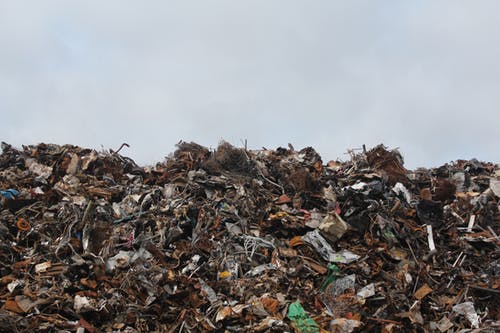The production of waste is unfortunately an unavoidable element to almost any business in any industry, with strict rules and guidelines in the UK regarding how to dispose of hazardous waste. It is also absolutely necessary to ensure the safety of all workers, the public and the environment at all times; which can very often be a tedious process and so specialists and experts are needed in such cases.
Hazardous waste is no exception to this, and is rather a specific category of waste that requires even closer care and attention to detail in its disposal, as it causes a higher potential threat to all people and the environment surrounding it. Particularly in the case of vacant properties and construction sites, where hazardous waste is more likely to be present, security should be increased to reduce the likelihood of its dumping.
A key part in the management of such waste is its identification as hazardous waste; with correct identification resulting in its appropriate disposal. This not only protects both people and the environment from damage that would likely be done by such waste, but can also protect a business from liability for the waste once it has been correctly handled and disposed of.
Types of Hazardous Waste
The UK government website defines hazardous waste as the following – “if it (or the material or substances it contains) are harmful to humans or the environment.” There are a variety of different types of hazardous waste including combustible waste and used needles needing disposing of, however, the main categories of such waste are the following:
- Asbestos – A term used to define a group of microscopic fibrous minerals, when breathed in they can cause severe injury to the lungs, including the triggering of such severe illnesses as mesothelioma (a cancer that effects the lining of someone’s lungs) and asbestosis (scarring of the lungs). Statistics show that asbestos kills an average of 5000 workers a year
- Solvents – Volatile organic compounds (VOCs) are used in numerous different construction products such as paints, paint thinners and various glues. These types of materials can cause short-term effects of irritation to the body part it comes into contact with, and long-term effects (with prolonged exposure to the substance) of potential illnesses like dermatitis, damage to the liver and/or kidneys as well as contributing to neurological diseases
- Pesticides – Typically used in agriculture to control pests from destroying produce, pesticides are chemicals that can also cause severe damage to the environment they are applied to, having the potential to poison animals, with the inclusion of people, other than the pests of the produce (often called non-target animals)
- Chemicals (e.g. print toner or brake fluid) – This type of waste is hazardous due to the chemicals being poisonous. Therefore, if disposed of incorrectly this could risk the waste coming into contact with the public, and subsequently damaging their health. Illnesses associated with such chemicals as brake fluid being metabolic acidosis and kidney failure
- Oils (e.g. car oil) – Excluding edible oils, prolonged, frequent contact with such hazardous oils as car oil can cause such impacts to a person’s health as dermatitis and skin cancer
- Batteries – These are considered a hazardous waste due to their toxic content. Batteries contain at the very least one of eight metals that when incorrectly disposed of can have the potential to come into contact with the public in such examples as leaking into groundwater and contaminating it with a poisonous substance. This can impact severely on someone’s health if ingested
- Hazardous Waste Containers – Containers of hazardous waste run the risk of having left over residue from the toxic materials they previously contained. Therefore, containers should be treated with the same level of care and procedure as hazardous waste to completely eliminate the chances of potential exposure

The Risks of Improper Disposal
When not disposed of correctly, these types of hazardous wastes run the risk of being exposed to the surrounding environment and the people within it, having the potential to severely impact a person’s physical health, whilst also making a business liable for such damages due to incorrect disposal of the substance.
If you are still not sure about whether your waste meets the criteria of hazardous, you can find more information on how to check and classify this here: https://www.gov.uk/how-to-classify-different-types-of-waste
How to Properly Dispose of Hazardous Waste
Disposing of hazardous waste must be handled with meticulous care, and can therefore become an extremely stressful and time-consuming task. Here at Secure Site UK, we provide disposal services for many of the different types of hazardous waste, such as industrial chemicals, laboratory chemicals and pesticides.
In addition to this, we can also arrange for the proper and effective cleaning of materials contaminated with the hazardous waste, and ensure a correct and thorough paper-trail of your disposed waste so you can rest assured that your hazardous waste has been disposed of safely and in keeping with UK hazardous waste regulations.







